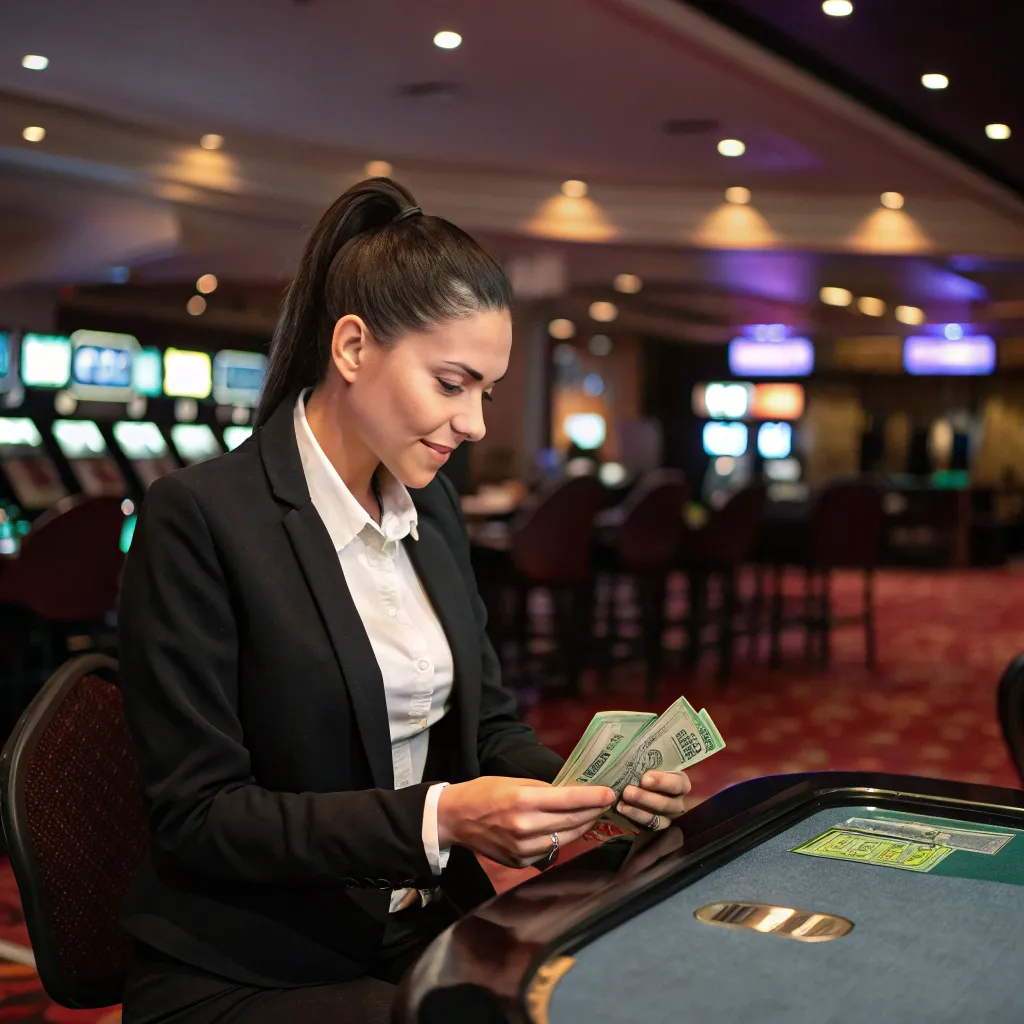The influence of luck and probability on the outcome of casino games: what is more important?
When it comes to gambling, the concepts of “luck” and” probability ” become key. Many players mistakenly believe that the entire casino game is based solely on luck, while probability and mathematics play a crucial role in determining the outcome. In this article, we’ll look at how luck and probability interact, and how they affect your chances of winning.
1. What is gambling luck?
Luck is an element of randomness that cannot be predicted or controlled. In casinos, especially in games like slots or roulette, luck is often perceived as the main factor influencing the outcome. But how does this work in practice?
1.1. Examples of the influence of luck
- Slots: When you click a button on a slot machine, the result is completely dependent on random factors. You can win a large sum in one round and lose all your chips in the next.
- Roulette: Spinning the ball around the wheel seems to be a matter of chance, and each round is a new attempt to try your luck.
However, it is important to understand that luck is not something permanent. It can change from round to round, and there is no guarantee that luck will be on your side at any given moment.
1.2. The player’s delusion about the “lucky streak”
Many players believe in a “lucky streak” — when, after several successful outcomes, they think that success will continue. However, this is an illusion based on the human tendency to look for patterns where there are none. In the casino, each result is independent of the previous one, and the probability of winning remains constant throughout the game.
2. The role of probability in gambling
If luck is something random and not controlled, then probability is a mathematical calculation of the chances of a certain outcome. In a casino, probability plays a key role, especially in strategy games like poker or blackjack.
2.1. Basic concepts of probability theory
- Event Probability (P): The probability that a particular event will occur is calculated as the ratio of the number of favorable outcomes to the total number of possible outcomes.
For example, the probability of a certain number falling out on a cube is 1/6, since there are 6 faces on the cube, and each face is equally likely.
- Expected Value( EV): The expected value is the average win or loss that can be expected from a long-distance game. In a casino, EV is usually negative, which means that the player loses money on average with each bet.
2.2. Probabilities in different games
| Game | Winning Probability (approximately) | Note |
| Roulette (European) | 1/37 (per number) | When betting on a single number, the probability is low. |
| Blackjack | is About 42% | Dependent on the skills and rules of the game. |
| Slots | 1/10 000 to 1/100 000 (for the jackpot) | Very low probability of a big win. |
| Poker (Texas Hold’em) | 2-6% (on a specific hand) | The probability depends on the cards and the skill of the player. |
2.3. Example of calculating probability in roulette
If you bet on a specific number in European roulette, the probability of winning is 1/37, since there are 37 numbers on the wheel (from 0 to 36). The odds of winning are low, but if you bet on even or odd numbers, the probability increases to 18/37, which is about 48.6%. This is a typical example where the choice of bet and the probability of winning can significantly affect the outcome of the game.
3. How do luck and probability compare?
When a gambler is faced with gambling, it is important to understand that luck and probability are two sides of the same coin. Randomness affects short stretches of the game, but probability determines the long-term outcome.

3.1. Short-term luck
In the short term, luck can make a huge difference. For example, even with extremely low odds, you can hit the jackpot on slots on the first day of the game. But this is the exception, not the rule.
3.2. Long-term probability
At a long distance, the probability begins to prevail. For example, in a blackjack game, if you play by strategy, your chances of winning increase, but still the casino house retains a small advantage. Over time, this advantage is reflected in the fact that the casino wins more than the players.
3.3. Example of the ratio of luck and probability
Let’s say you play blackjack and win several times in a row due to luck. However, over a long distance, the casino has an advantage of about 0.5-1%, which means that the more rounds you play, the more likely it is that you will eventually lose.
4. Myths about Casino Luck
Many gamblers believe in myths about luck and try to use various “strategies” to deceive the casino. Here are some common misconceptions:
4.1. Hot and Cold slots
Some players are sure that if the slot has not paid out winnings for a long time, it should just “warm up” and start giving out large payouts. This is a misconception. Each spin of the slot is completely independent of the previous one, and the chances of winning remain the same.
4.2. Martingale bets
The Martingale system assumes that the player doubles the bet after each loss, assuming that at some point they will win and recoup all previous losses. However, this strategy can lead to huge losses, since no result depends on the previous one, and the casino always has a limit on the maximum bet.
5. How to use knowledge about probability?
Understanding probability can help players make better decisions and avoid unnecessary risks. Here are some tips:
5.1. Choosing games with a low casino advantage
If you want to maximize your chances of winning, choose low-margin casino games like blackjack or video poker. These games require skill and a strategic approach, which reduces the impact of luck on the outcome.
5.2. Setting limits
Understanding probability helps players realize that the casino has an advantage in the long run. Therefore, it is important to set limits on bets and game time to avoid serious financial losses.
5.3. Betting Strategies
In some games, such as blackjack, there are strategies that can help reduce the casino’s advantage. For example, using a basic blackjack strategy based on mathematical probability calculation allows players to optimize their decisions.
6. Conclusion
Luck and probability play a key role in the outcome of casino games. Luck affects the outcome in the short term, but in the long run, it is probability that begins to dominate. It is important for players to understand that, despite some cases of luck, casino games are designed in such a way that over a long distance the advantage always remains with the institution. Knowing the probabilities can help you make more informed decisions and minimize risks, but gambling remains an entertainment, not a means of earning money. Play responsibly and always remember that casinos are not built on luck, but on mathematical calculations that are always in favor of the organizers.
